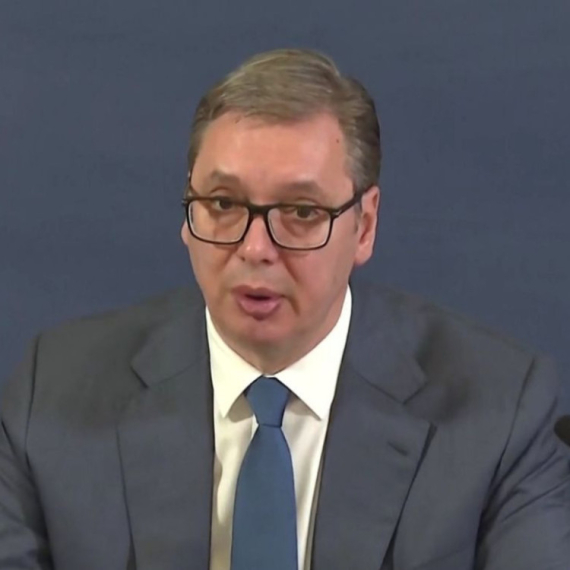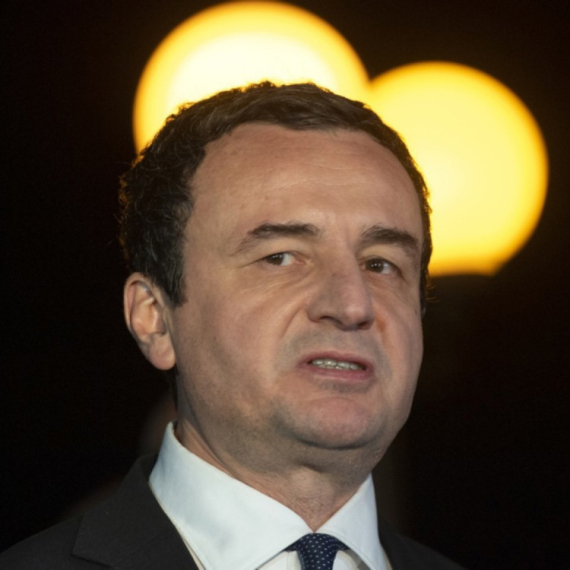Prime minister "expects stabilization"
Prime Minister Mirko Cvetković says he is certain that Serbia and the IMF will conclude a contract in October.
Sunday, 06.09.2009.
11:33

Prime Minister Mirko Cvetkovic says he is certain that Serbia and the IMF will conclude a contract in October. According to him, this would secure "financial stability and favorable image" to the country. Prime minister "expects stabilization" He also told Belgrade's Vecernje Novosti daily that he is convinced there would be no "hot union fall" in Serbia, nor any further economic downturn, and that the state is facing a reform of its public sector in the coming period, along with a gradual exit from the economic crisis and improved standard of living. Cvetkovic revealed that a comprehensive public sector reform plan would be made in the next six weeks, and that this reform, the goal of which is to have an efficient administration, "must complete in the next several years". The public sector reform, according to the premier, is in store for Serbia unrelated to the recent arrangement with the IMF. His cabinet will in the next days come up with its estimates on the decrease of public spending for each coming year. Asked whether the IMF could still be unhappy with the Serbian government's measures, and seek VAT and income tax hikes, Cvetkovic said the tax increase was "not an element in Serbia's offer", as state officials were meeting with an IMF mission in Belgrade earlier this month. "We are very optimistic that we will manage to produce a public sector reform program, and as far as we're concerned VAT and income tax increases have been ruled out as an option." The prime minister also stated there would be "no brutal sacking", but that there would be "cuts", if it turns out Serbia has a surplus of public sector employees, "compared to indicators in some European states". A rough estimate shows that that the number of public sector workers would be ten percent lower, he said. Cvetkovic said that the recent failure within the ruling coalition to see eye to eye on the changes to the Information Law has not jeopardized his cabinet's stability, and that it has the capacity to see its full mandate in office. As for the speculation on a government reshuffle or new elections, Cvetkovic said that any changes to the government were an issue that would have to be agreed on by the coalition partners, and added that he sees "no reason to even open up the subject of elections when Serbia has a lot more important state jobs ahead". Speaking about the status of Kosovo, he said that he expects that the International Court of Justice (ICJ) opinion on the legality of the Kosovo Albanian unilateral proclamation "to be a basis for new negotiations". Cvetkovic also expects that the draft Vojvodina statute and accompanying legislation would soon enter the parliamentary procedure.
Prime minister "expects stabilization"
He also told Belgrade's Večernje Novosti daily that he is convinced there would be no "hot union fall" in Serbia, nor any further economic downturn, and that the state is facing a reform of its public sector in the coming period, along with a gradual exit from the economic crisis and improved standard of living.Cvetković revealed that a comprehensive public sector reform plan would be made in the next six weeks, and that this reform, the goal of which is to have an efficient administration, "must complete in the next several years".
The public sector reform, according to the premier, is in store for Serbia unrelated to the recent arrangement with the IMF. His cabinet will in the next days come up with its estimates on the decrease of public spending for each coming year.
Asked whether the IMF could still be unhappy with the Serbian government's measures, and seek VAT and income tax hikes, Cvetković said the tax increase was "not an element in Serbia's offer", as state officials were meeting with an IMF mission in Belgrade earlier this month.
"We are very optimistic that we will manage to produce a public sector reform program, and as far as we're concerned VAT and income tax increases have been ruled out as an option."
The prime minister also stated there would be "no brutal sacking", but that there would be "cuts", if it turns out Serbia has a surplus of public sector employees, "compared to indicators in some European states".
A rough estimate shows that that the number of public sector workers would be ten percent lower, he said.
Cvetković said that the recent failure within the ruling coalition to see eye to eye on the changes to the Information Law has not jeopardized his cabinet's stability, and that it has the capacity to see its full mandate in office.
As for the speculation on a government reshuffle or new elections, Cvetković said that any changes to the government were an issue that would have to be agreed on by the coalition partners, and added that he sees "no reason to even open up the subject of elections when Serbia has a lot more important state jobs ahead".
Speaking about the status of Kosovo, he said that he expects that the International Court of Justice (ICJ) opinion on the legality of the Kosovo Albanian unilateral proclamation "to be a basis for new negotiations".
Cvetković also expects that the draft Vojvodina statute and accompanying legislation would soon enter the parliamentary procedure.





























Komentari 0